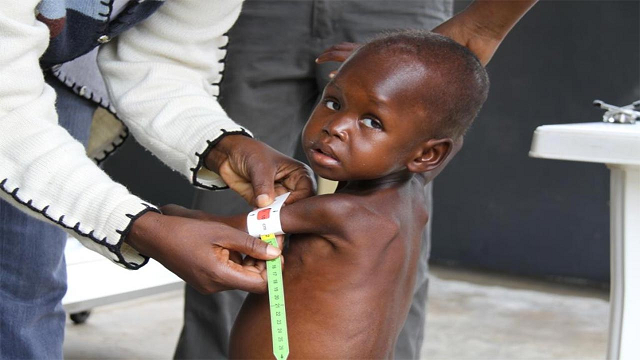The world is hungry. A report by the Food and Agriculture Organization (FAO) noted that about 795 million people globally do not have enough food to lead a healthy active life. This is a whopping one in nine people on earth.
Sadly, the vast majority of the world’s hungry live in developing countries where 12.9 percent of the population is malnourished, which is deficient in the intake of energy and/or nutrients. This is especially true of Nigeria which is bedeviled with a lack of healthy choice of food and deficient in major nutrients like protein, carbohydrates, fats and oil, and water.
Protein is widely regarded as an essential building block of life. It is found in every cell of the body. When people do not get adequate amounts of protein from their diet, it leads to protein deficiency. Protein deficiency is today a major cause of malnutrition. The World Health Organisation (WHO) describes, “Malnutrition as the gravest single threat to the world’s public health.”
Protein is a macronutrient that is basic for the development, upkeep and repair of all your body’s cells. Protein deficiency in Nigeria poses not only a major health burden, but also an economic and a social burden.
According to reports, 59 million Nigerians are macronutrient deficient and about 45% of deaths among children under five years of age are linked to malnutrition. The Food and Agriculture Organization (F.A.O) reveal that over 13 million Nigerian children affected by chronic malnutrition or chronic malnourishment.
If not curbed, protein deficiency can lead to a number of diseases particularly kwashiorkor. It can also repress a youngster’s mental and physical advancement, mental hindrance (especially in infants) and cause tension, surliness, and crankiness.
In addition, malnourished women and girls of reproductive age have higher chances of giving birth to smaller babies (also called stunting), continuing the cycle of malnutrition into future generations. The consequences of stunting on education are also dramatic. Various studies show that child stunting is likely to impact brain development and impair motor skills. According to UNICEF, stunting in early life is linked to 0.7-grade loss in schooling, a 7-month delay in starting school and between 22 and 45 percent reduction in lifetime earnings. Stunted children become less-educated adults, thus making malnutrition a long-term and intergenerational problem.
A protein deficient country slows economic growth and perpetuates poverty. Indirect losses for the country’s economy are caused by poor cognitive function and reduced school attainment that originate in early childhood due to undernutrition. In fact, the education gap and consequent lower skill-level of workforce substantially delay the development of countries affected by malnutrition.
Globally, the economic cost of malnutrition is estimated to range from 2 to 3 percent of Gross Domestic Product (GDP). In Nigeria, it is as high as 11 percent according to a UNICEF report.
The effects of malnutrition are long-term and trap generations of individuals and communities in the vicious circle of poverty. Improving nutrition is therefore essential to eradicate poverty and accelerate the economic growth of low- and middle-income countries. There is much evidence that improved nutrition not only drives stronger economic and social growth, but is tremendous value for money.
With the huge number of protein-deficient people in Nigeria, it is no doubt a national emergency. All hands must thus be on deck to curb the occurrence.
There has to be a massive campaign to create awareness, as a first step, of the need to improve protein intake. In addition, government policies should be seen to truly empower citizens boosting the capacity to earn and thus be able to live meaningful and productive lives.
Eliminating protein deficiency is a task that must be accomplished.











